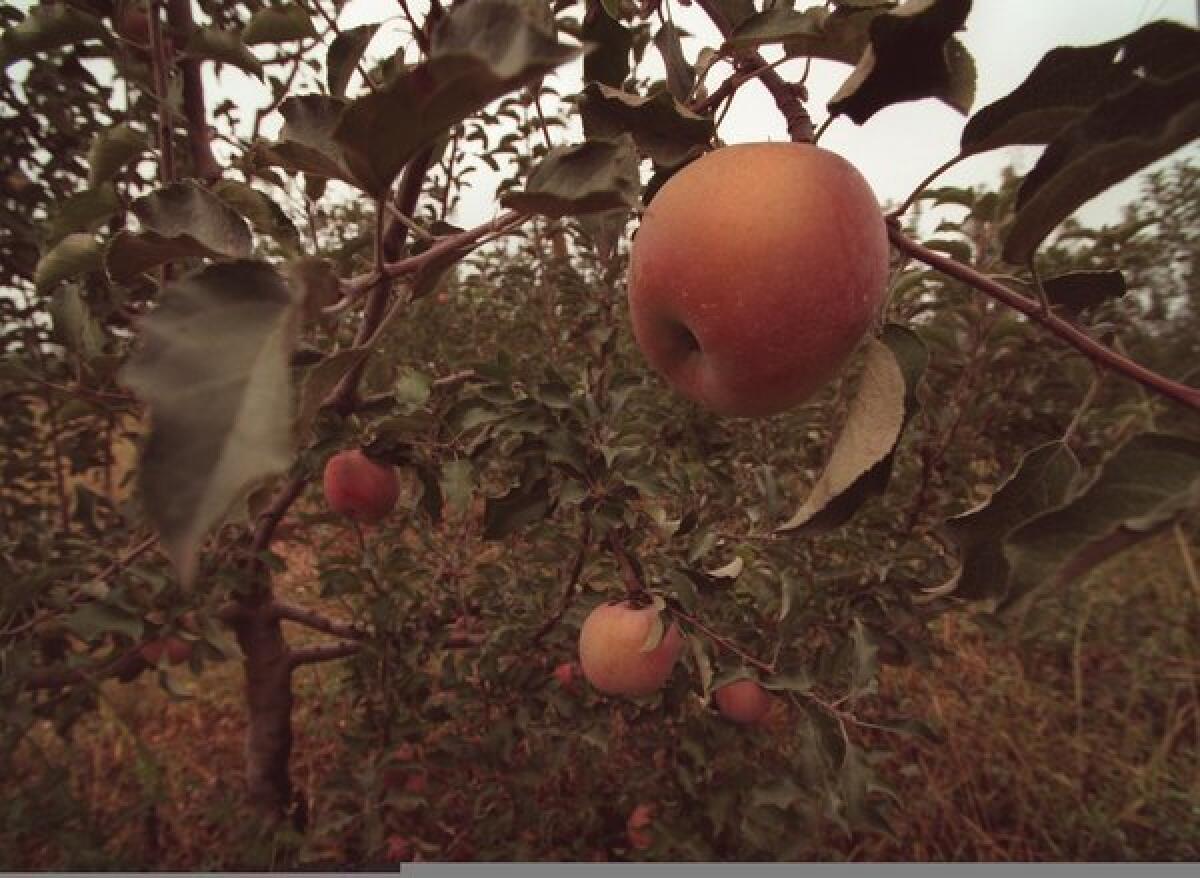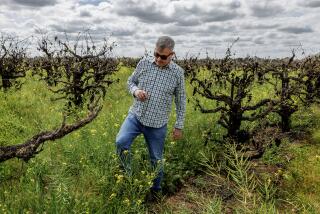Change in Japanese apples blamed on global warming

Global warming has subtly altered the taste and texture of Japanese apples over the last 40 years, although consumers may not realize it, according to new research.
A study published in Scientific Reports concluded that climate change was likely responsible for earlier apple tree blooms and warmer growing seasons in Japan, as well as softer and less acidic apples.
“The taste and textural attributes of apples in the market are undergoing change from a long-term perspective, even though consumers might not perceive these subtle changes,” wrote lead study author Toshihiko Sugiura, a fruit tree researcher at Japan’s National Agriculture and Food Research Organization.
Sugiura and colleagues examined Fuji and Tsugaru apples raised in experimental growing stations in Nagano and Aomori prefectures from 1970 to 2010. Growing practices, which include soil management, pruning and hand pollination, were conducted along recommended guidelines, authors said.
Each year, researchers documented temperature, rainfall, time of bloom, time of harvest and other environmental indicators. Apples were also evaluated for acid concentration, firmness and water core -- an undesirable condition that causes browning during storage.
During the study period, average air temperature increased about 2 degrees Fahrenheit in the studied orchards, according to researchers. Also, by the end of the study period, full bloom dates were occurring three to five days earlier in the year.
By the end of the study, researchers noted that the apples had declined in acidity, firmness and water core rating. Acid concentration in fruit is associated with the sensation of sourness.
Researchers said that the level of the changes was “not high,” but that they were significant.
“If global warming continues to progress, the changes in the taste and textural attributes of apples could be more striking as blooming dates become even earlier and temperatures increase during the fruit maturation process,” the authors wrote.







